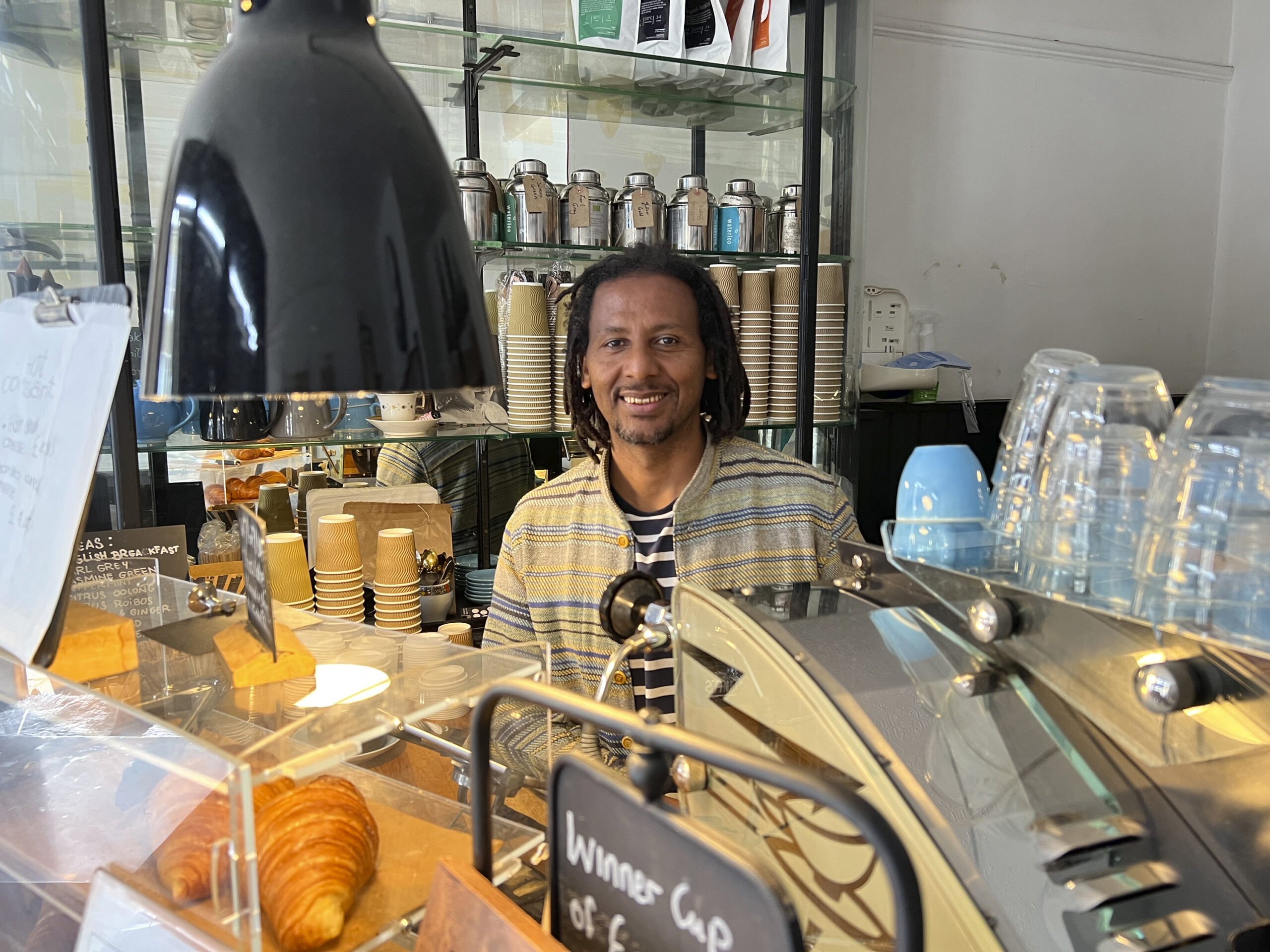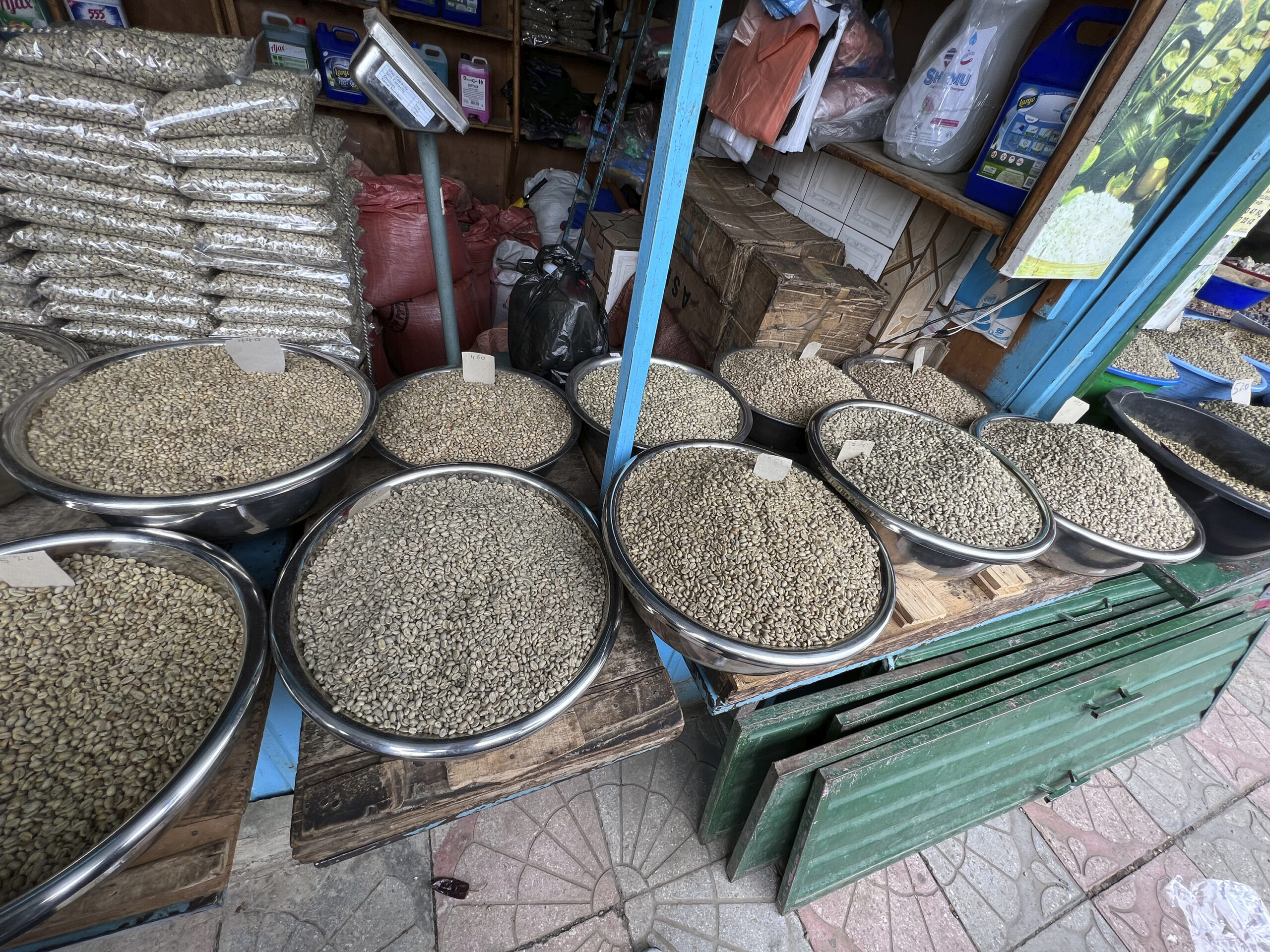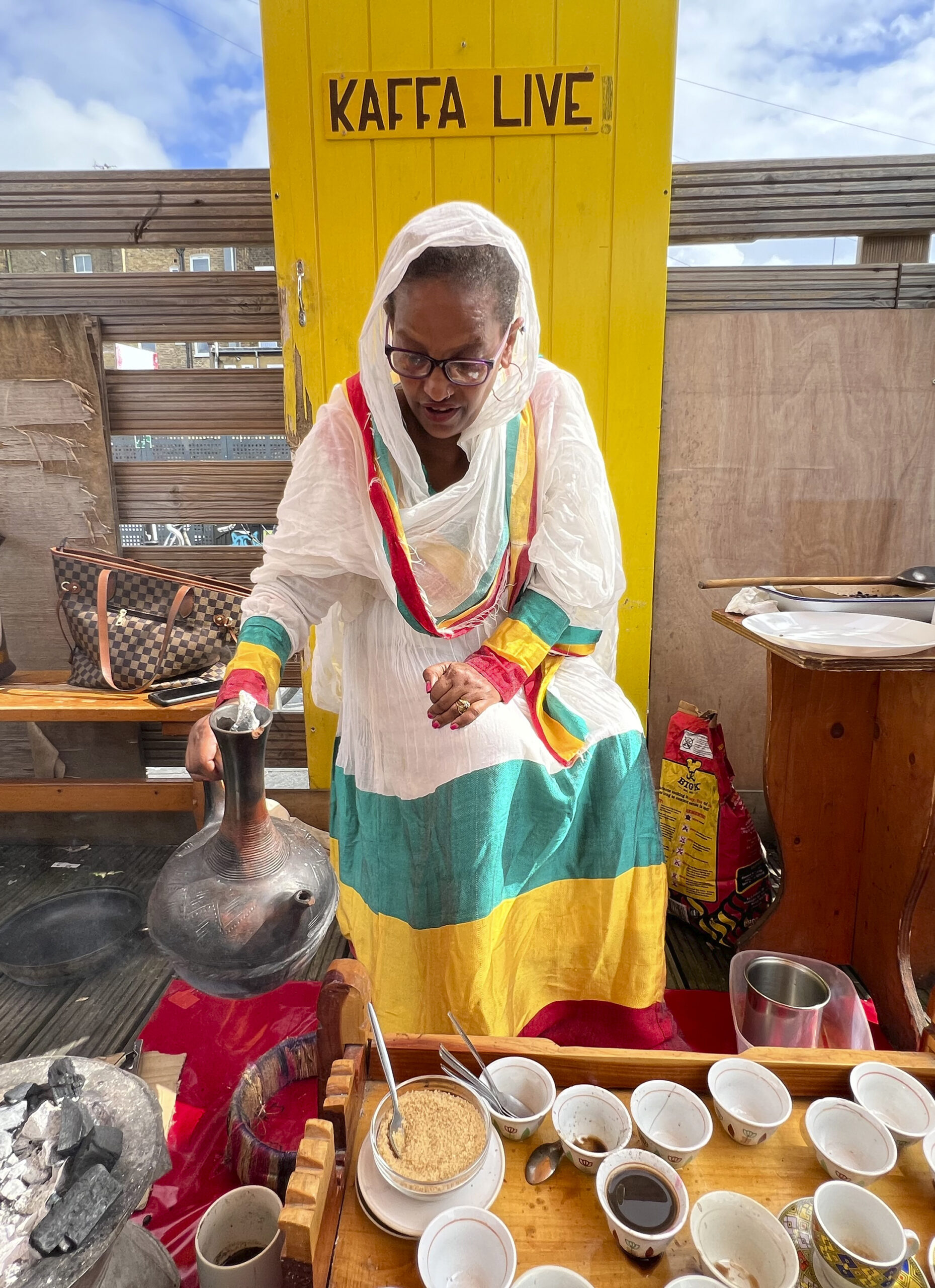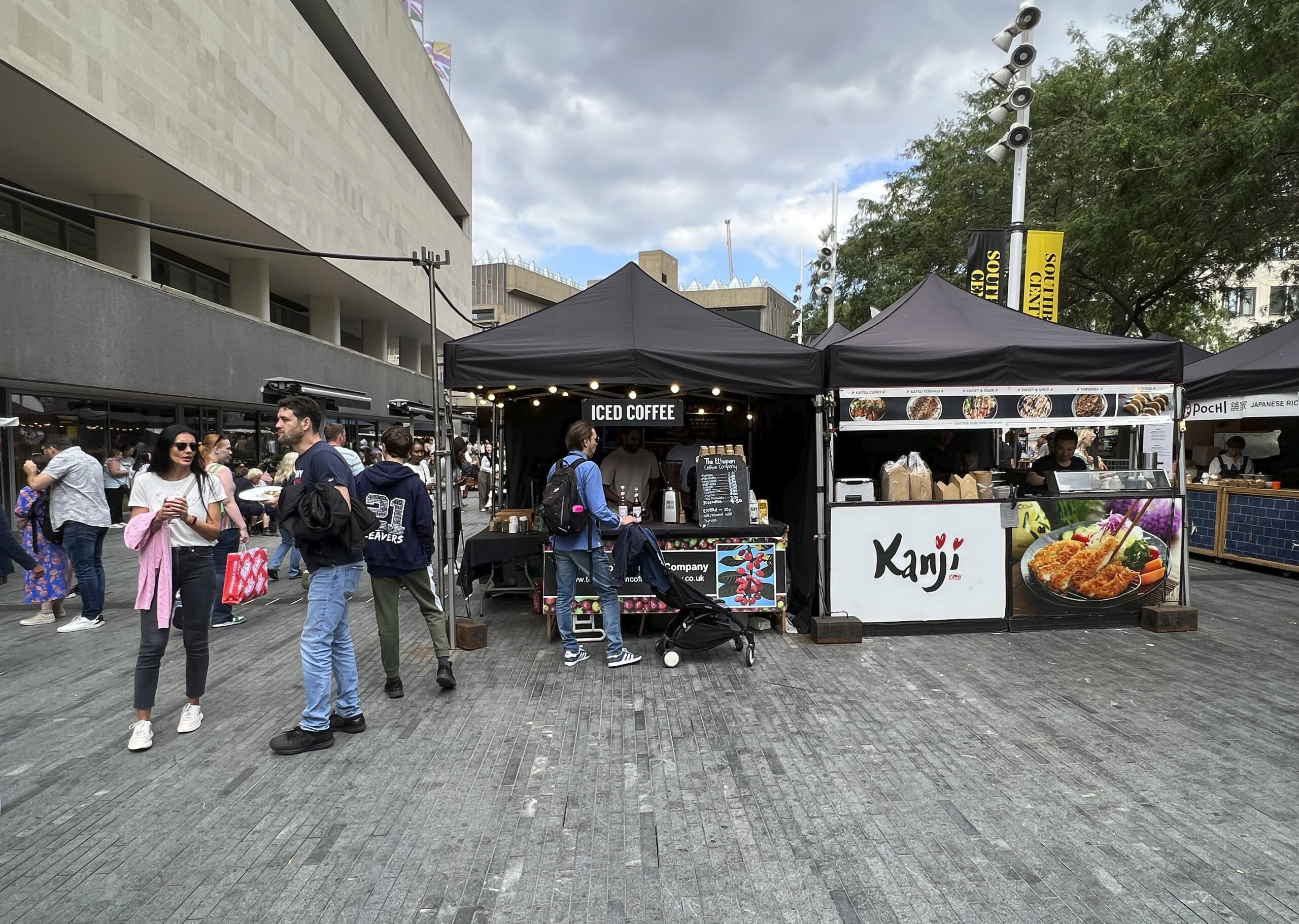Ethiopian coffee shops find fans far from home
LONDON (AP) – Family members, neighbours and passersby would be drawn in by the strong aroma of fresh beans roasting in a pot, often made by his mother or another family member.
Regardless of who they were, all were welcome.
Growing up in Ethiopia, Yared Markos would often start his days the same way: with coffee.
And this tradition wasn’t limited to the morning. Coffee, or buna in Amharic, is typically drunk at the end of each meal. Drinking coffee was a communal experience for Markos, so when he first immigrated to London from Ethiopia 23 years ago, the culture shock hit hard.
“They sell our coffee in Starbucks and other places but they don’t follow our traditions,” said Markos, who has owned Kaffa Coffee since 2004. The shop, now in the East London neighbourhood of Dalton, hosts coffee ceremonies every weekend in the summer, as well as during cultural events year round, and special orders.
“Tourists will walk by and smell the coffee and come in asking questions,” Markos said. “It makes people want to learn more about the culture.”
Markos said that when he moved to London, in 2000, he didn’t see any Ethiopian coffee shops; now, there are more than a dozen all over a city where tea, its counterpart, has been a staple for centuries. Ethiopian coffee has made similar inroads in cities around the world.
Among some of the most popular Ethiopian-origin coffee types are the floral Yirgacheffe, fruity Limu and nutty Kochere.

An ancient tradition
Markos named Kaffa after the southwestern region in Ethiopia where coffee beans are believed to have been discovered around AD 800. Traditional accounts say an Ethiopian goat herder named Kaldi noticed his goats acting strangely one day after eating berries from a tree. He tried them himself, and felt energized and alert. Kaldi took the berries to a monk, who threw them in a fire, calling them the work of the devil.
A strong aroma was released, and the monks saved the remnants of the burnt beans, putting them in a jug with hot water. When they drank the concoction, they realised it helped them stay awake during nightly devotions and prayers.
Over the years, coffee-making in Ethiopia has evolved into full-on ceremonies led by the women in a household.
“The social value of the coffee ceremony is one of our biggest traditions,” Markos said.

How the coffee gets made
Fresh beans are roasted in a pot for a few minutes before being passed around, so everyone can inhale the flavourful fumes. They are then ground down to a powder and placed inside a jebena, or Ethiopian coffee pot, traditionally made of clay, on top of a stove.
While the coffee is being made, itan, or frankincense, is burned to enhance the already aromatic process. Once the kettle comes to a boil several times, the coffee is served in a small cup called a sini.

International Coffee Day
Almost a decade ago, the International Coffee Organization, which has 77 member countries and is headquartered in London, officially marked October 1 as International Coffee Day. This year, the theme is the promotion of a safe and healthy working environment in the coffee supply chain.
The London Coffee Festival, started in 2011, also provides an occasion for coffee lovers to come together. Anteneh Mulu, co-owner of The Ethiopian Coffee Company shop in central London, credits the festival with helping to promote Ethiopian coffee to a new community.
Mulu, 46, and his business partner Polly Hamilton, 79, opened their shop in 2013. Like Kaffa Coffee, they import directly from Ethiopia, where beans are often named after the region they were grown in — paying homage to the motherland in name and practice.
As Ethiopia’s traditions spread outside the country, both Markos and Mulu hope more people will be encouraged to prioritize community over caffeine while drinking coffee.



